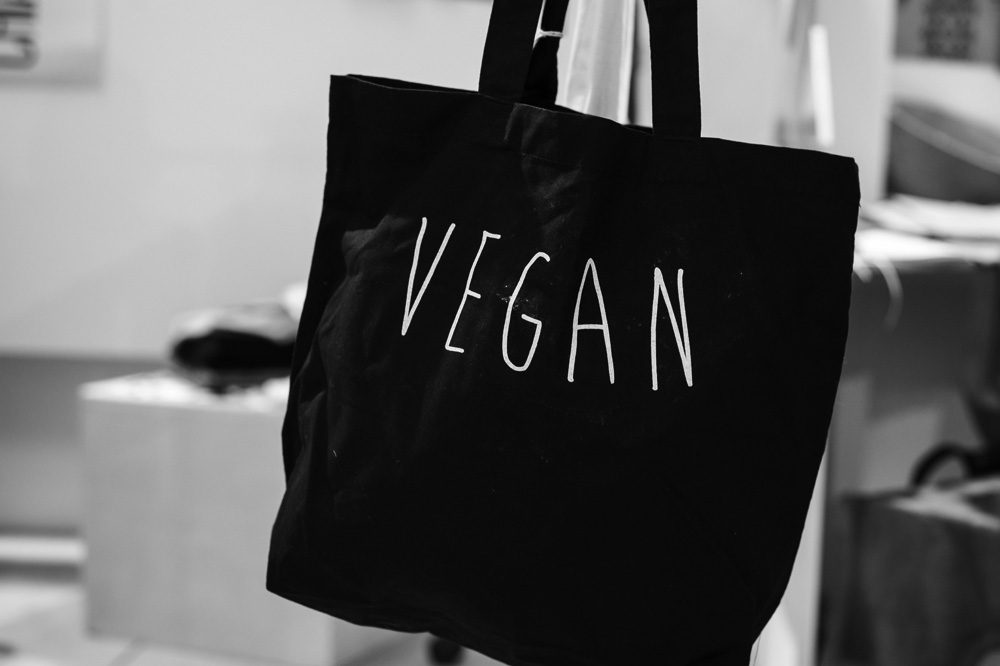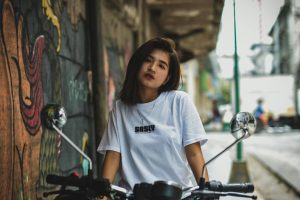In an era of ethical consumerism, vegan beauty is far more than a trend as people are increasingly making conscious decisions about what they consume. ‘Sustainable,’ ‘eco-friendly’ and ‘cruelty-free’ aren’t buzzwords. Each one of us has the power to lead change with our choice of products. For example, buying cruelty-free and vegan beauty brands i.e. products that were not tested on animals and have zero animal-derived ingredients, go a long way in changing the narrative.
As more people consciously consider the products they purchase—including celebrities like Beyoncé and Jay-Z—being vegan is not an oddity. Per Fortune business Insights, “The global vegan cosmetics market was valued at USD 19.21 billion in 2024. The market is projected to be worth USD 20.48 billion in 2025 and reach USD 32.56 billion by 2032, exhibiting a CAGR of 6.85% during the forecast period.”
How Vegan Beauty rose in popularity
A decade ago, finding vegan beauty brands was not an easy feat. The market was niche and options,, limited. Some brands offered a few vegan products and small vegan lines were launched but there weren’t too many takers. Vegan beauty products began gaining significant popularity in the early 2010s, as consumer awareness about animal rights, environmental sustainability, and clean ingredients started to rise. The movement was fueled by increased media coverage, social media advocacy, and the growing popularity of ethical consumerism.
During this period, many brands began to introduce vegan lines to cater to a more conscious audience, recognizing the market potential of ethical beauty products. For example, brands like Lush, founded in 1995, became widely popular in the 2000s and early 2010s for their commitment to cruelty-free and vegan formulations, helping to mainstream vegan beauty. Similarly, companies like “Too Faced” launched vegan product ranges around 2015, reflecting the shifting consumer preferences.
In recent years, vegan beauty has surged further in popularity, becoming a mainstream trend. Major brands such as “Urban Decay”, “Fenty Beauty”, and “MAC” have expanded their vegan options, while new entrants like “Herbivore” and “Milk Makeup” have built their brands around vegan and cruelty-free principles. The rise of online activism, influencer marketing, and consumer demand for transparency have all contributed to vegan beauty’s mainstream acceptance. Today, vegan beauty products are considered an essential part of the ethical and sustainable beauty movement, with their popularity continuing to grow globally.
The rise of social media and influencer culture has played a significant role in popularizing vegan beauty. Influencers and celebrities often endorse cruelty-free and vegan products, amplifying their reach and appeal to a broader audience. For example, actress and activist Alicia Silverstone has promoted vegan skincare and makeup, encouraging fans to make conscious choices. This visibility has contributed to a growing demand for vegan options not only among dedicated vegans, but also among mainstream consumers who prioritize sustainability and ethical sourcing. As a result, many established brands like “e.l.f. Cosmetics” have expanded their vegan product lines.
Furthermore, the increasing availability and variety of vegan beauty products have made it easier for consumers to adopt a cruelty-free lifestyle. Major retailers now stock extensive vegan ranges, and certifications from organizations like The Vegan Society assure consumers of a product’s ethical standards. Innovative ingredients such as plant-based oils, mineral pigments, and natural preservatives have become common in vegan formulations, offering performance comparable to traditional products. This widespread acceptance and accessibility have contributed to vegan beauty’s rising popularity, making it a mainstream choice rather than a niche market.
What makes a product Vegan?
A vegan product is one that is free from all animal-derived ingredients and by-products. This means that during the manufacturing process, no animal parts such as meat, dairy, eggs, honey, or gelatin are used. Instead, vegan products rely on plant-based ingredients like fruits, vegetables, grains, nuts, seeds, and legumes. This ensures that the product aligns with a vegan lifestyle, which avoids animal exploitation for ethical, environmental, or health reasons.While the demand for vegan cosmetics has grown in the past five years, there is still a lot of confusion about what it means for a product to be vegan.
Per Vogue, ”If the label says ‘vegan’, ‘vegan-friendly’ or ‘100 per cent vegan’, it all means that that particular product does not contain any animal-derived ingredients or animal by-products. Examples of animal-derived ingredients would be carmine (or cochineal extract, C.I. 75470, E120, natural red or crimson or carmine lake on ingredients lists), which is a red coloured extract obtained from insects called cochineal and is often found in lipsticks; while some of the most common animal by-products found in beauty are honey and beeswax (or cera alba) that are produced by honey bees, and used in all sorts of moisturising formulations…”
In addition to excluding animal ingredients, vegan products are also typically free from animal testing and do not involve any cruelty during production. Many companies seek certification from organizations such as The Vegan Society or Vegan Action to authenticate their products as genuinely vegan. These certifications help consumers easily identify products that meet strict vegan standards, promoting transparency and trust.
Furthermore, vegan products often emphasize sustainable and ethical sourcing of ingredients. By avoiding animal agriculture, which is a significant contributor to environmental issues like deforestation and greenhouse gas emissions, vegan products aim to reduce their ecological footprint. Overall, a product is considered vegan when it is made entirely without animal ingredients or harm, aligning with ethical, environmental, and health-conscious values.

Vegan beauty is rising in popularity
Meeting an Increasing Demand
The demand for ethical, sustainable, and vegan cosmetics has seen a significant rise in recent years, driven by consumers becoming more conscious of the environmental and ethical implications of their purchases. Shoppers are increasingly seeking products that are cruelty-free, free from harmful chemicals, and made with responsibly sourced ingredients. This shift is partly fueled by greater awareness of animal rights issues, as well as concerns about the environmental impact of traditional cosmetic manufacturing practices. As a result, brands that prioritize transparency, eco-friendly packaging, and cruelty-free testing are gaining popularity and loyalty among ethically-minded consumers.
Additionally, the global movement towards sustainability has amplified interest in vegan cosmetics, which avoid animal-derived ingredients and often incorporate plant-based, natural components. Consumers are now more informed and motivated to choose products that align with their values of compassion and ecological responsibility. This growing trend not only influences purchasing decisions but also encourages brands to innovate and adopt sustainable practices, ultimately contributing to a more ethical and environmentally friendly beauty industry.
Pascale Mora, L’Oréal’s head of scientific communication, told Vogue: ‘ From a consumers’ point of view, vegan is a rising and global trend highly linked with the rise of sustainability concerns, a growing expectation and interest from consumers also regarding the products they use: All categories, but in particular a boom in haircare; in make-up and skincare, the vegan is the most growing claim of all the claims of sustainable and ethical beauty; and the vegan claim has emerged and is growing in Asia…’
The Future is Vegan
Consumer demand for ethics, transparency and responsibility within the beauty industry has become a significant movement—one that is slated to grow. Sustainable, ethically created cosmetics are just one fragment of a cultural shift toward making consumer choices in sync with personal beliefs. The vegan beauty market is expected to grow, and it is likely that more and more brands will take note and evolve. A few notable vegan brands include “Daughter Earth” which is reef-safe, earth-friendly and not tested on animals; “Earth Rhythm” has biodegradable ingredients, recyclable packaging and is being certified as organic and non-toxic; “Neemli” ensures skincare needs are met through plants, not animals, and comes in reusable recyclable packaging.

Daughter Earth
Today, consumer demand for vegan beauty products continues to grow, driven by increasing awareness of ethical, environmental, and health considerations. Modern consumers are more informed and conscious about the ingredients in their skincare and makeup, seeking products that are free from animal-derived ingredients and that do not involve animal testing. The rise of social media and influencer endorsements has amplified this demand, with many beauty enthusiasts advocating for cruelty-free and vegan options as part of a sustainable lifestyle. As a result, brands are responding by expanding their vegan product lines and highlighting their ethical commitments to attract this socially conscious demographic.
Furthermore, younger generations, particularly Millennials and Gen Z, are at the forefront of this trend, prioritizing brands that align with their values. According to recent market surveys, a significant percentage of consumers now prefer vegan beauty products, viewing them as safer, more natural, and more environmentally friendly. This shift has prompted mainstream retailers and luxury brands to incorporate vegan options into their offerings, making vegan beauty a mainstream choice rather than a niche market. As consumer demand continues to rise, it is expected that the beauty industry will further innovate and diversify vegan product lines to meet this growing appetite for ethical and sustainable beauty solutions.

Jasmeen Dugal is Associate Editor at FashionABC, contributing her insights on fashion, technology, and sustainability. She brings with herself more than two decades of editorial experience, working for national newspapers and luxury magazines in India.
Jasmeen Dugal has worked with exchange4media as a senior writer contributing articles on the country’s advertising and marketing movements, and then with Condenast India as Net Editor where she helmed Vogue India’s official website in terms of design, layout and daily content. Besides this, she is also an entrepreneur running her own luxury portal, Explosivefashion, which highlights the latest in luxury fashion and hospitality.










